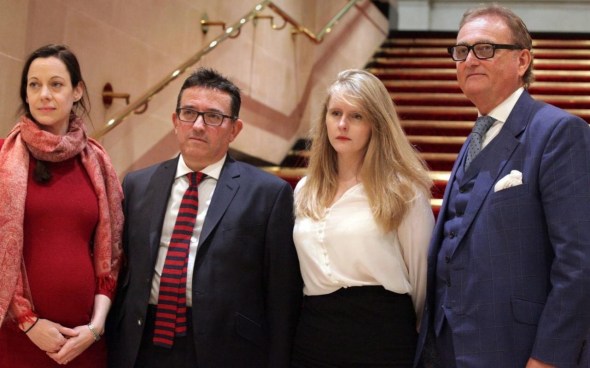What’s happened to the Brexit Party in #election2019 shows how our electoral system is undemocratic and unrepresentative and should change
2December 10, 2019 by Paul Goldsmith

The Brexit Party won the last national election but is effectively unable to compete in this General Election. For this, the First-Past-The-Post election system has a lot to answer.
If you take a step back and think about it, to go from coming first in the European Elections in May from pulling out of half the seats and having prominent politicians leave you to support another party in this election seems like a crazy situation.
But the Brexit Party received more than 30% of the public vote in May. This announced its arrival as a serious political force. Whilst it’s true that the result of that election effectively forced Theresa May out and encouraged the Conservative Party to have a leadership election in which Brexit purity was central, what happened in this campaign has been, almost, sad.
Nigel Farage pulled out of 317 Conservative held seats and has found his party floundering in the Labour held seats in the north that it thought it might win, but in fact could be the difference between Pro-Leave Conservatives winning and Pro-second vote Labour winning. This has led to prominent MEPs such as Annunziata Rees-Mogg and John Longworth to realign from the party and call a press conference asking for Brexit Party voters to vote Conservative.
The reason for this isn’t that their beliefs are changing. It’s because of our electoral system – first past the post (FPTP).
Because to win a seat all a party needs is a simple plurality (one vote) over the party in second place, two parties competing for the same voters tend to both lose. So, in the Labour northern heartlands the Brexit Party did so well in last May, 66% of voters might be Leave voters. But if they get 30,000 votes and the Conservatives get 30,000 votes, Labour only need 30,001 to win. So the Leave constituency would not get a Leave MP.
That is why FPTP is so bad for small parties. That is why the referendum was so important, particularly in the wake of UKIP getting four million votes and one MP, with 124 second places.
Now, many of us in the West London liberal bubble in which I live might celebrate anything that hurts Nigel Farage and the Brexit Party. To which I point out that it hurts the Green Party and the Liberal Democrat’s just as much.
So why doesn’t the electoral system change? Well, it suits the only two parties likely to be in Government, so they have no incentive to put that change in their manifesto. We had a referendum on a slight change (to AV) in 2011, which rejected it, but that wasn’t to proportional representation.
The Greens, Lib Dems, Plaid Cymru and the Brexit Party have all had to stand down candidates this election, but they won’t campaign together, even on this one issue, because the first three are more interested about the virtue signalling of not been seen talking to the fourth.
So, despite what I consider to be the undemocratic, unrepresentative situation developing in which a political party is forced to pull out of an election because of the system used for it, First-Past-The-Post is going nowhere.
Our democracy is worse for it.

Whilst not a fan of Farage, I do agree with you. However, the logical question is, which country do you believe has the fairest system? Or what unused system would you propose?
LikeLike
How quickly could our democracy react and recover to change to PR? Politics without a party having a majority in the UK creates deadlock, as shown by the fact that we have had to have this election in the first place, MP’s have proven they cannot work with each other or in the national interest – take the Tories and the DUP. Look at the Tories and the Lib Dems and the resulting toxicity about austerity and university fees, which the Lib Dems did not block.
What happened to the Brexit Party was not undemocratic, they have influenced the conservative party’s policy and leader. That is a direct democratic change to our country majority government which has been influenced by the Brexit Party. Leading to the election, appetite for Farage’s ideologically pure Brexit simply waned by leavers who were content with Boris’s ‘oven ready deal’.
Parties who either wanted to cancel Brexit or offer voters another referendum on EU withdrawal (Labour, Lib Dems, SNP, Green, Plaid Cymru) collectively won 51 per cent of the votes during this election. Given the results last night, do you think it would be fair for a PR coalition government to call for a second referendum? Despite the Tories winning the largest share of the vote? Can you imagine political crisis we would be in right now?
The UK does not have a deep history of alliances and coalition governments such as places like Germany, which was and still is in political crisis, along with the many other countries using PR in Europe.
Who’s to say that it would be any more successful than our current system? And if it is not successful, is this outweighed by the fact that it is ‘more democratic’ – which is debatable within itself. The large portion of European countries have far-right nationalistic parties with 20% of the vote share, is this what we want for the UK?
LikeLike